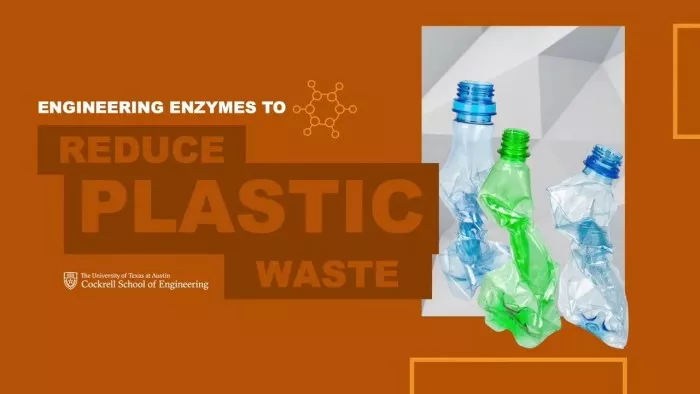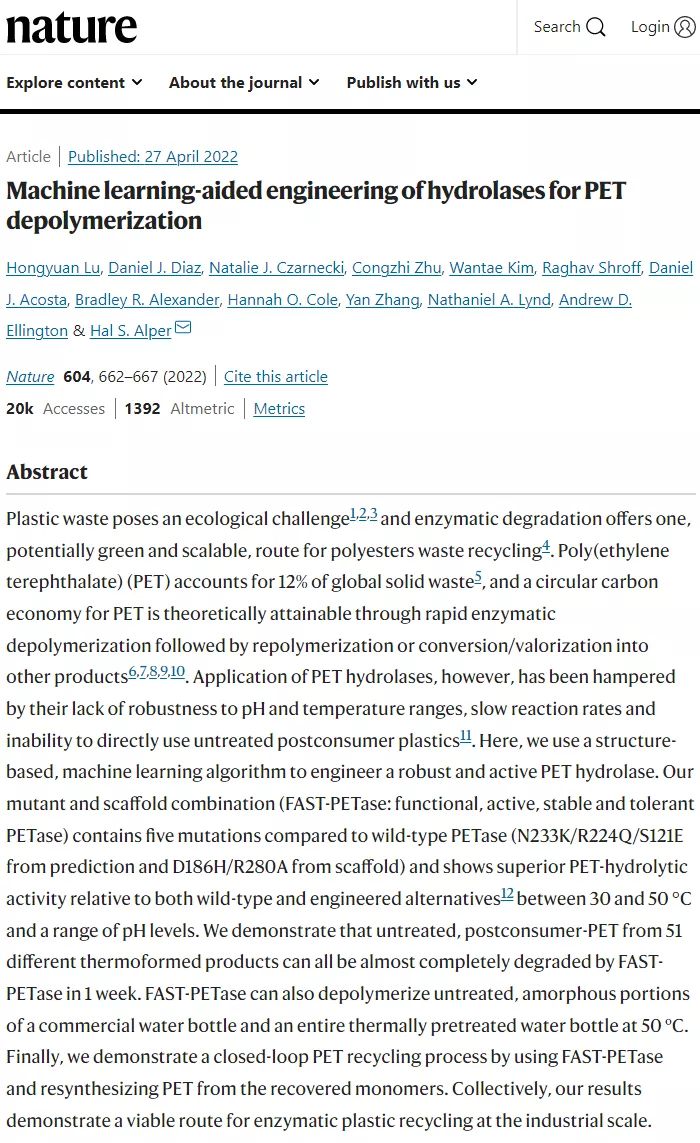In an article published in the journal Nature on April 27, 2022, a research team at the University of Texas at Austin introduced a new method to accelerate the recovery and clean-up of billions of tons of landfills through "plastisols"** It is reported that some current plastic products may take centuries for nature to completely degrade. The new mutant enzyme created by UT Austin chemical engineers can efficiently decompose plastics in the environment.

Video screenshot (via sci tech daily)
Hal Alper, Professor of mcketta's Department of chemical engineering, said: "in addition to the well-known waste management industry, there are many areas that can benefit from this advanced recycling process. Through a more sustainable 'plasticase' process, we can even begin to conceive of a real molecular level circular plastic economy".
In other words, this technology can help solve one of the world's biggest environmental problems - how to deal with billions of tons of plastic waste piled up in landfills and polluting nature's soil and water?
This enzyme can promote large-scale recycling, enabling major industries to reduce the impact of such waste on the environment by recycling and reusing plastics at the molecular level.

"Plastic eating enzyme" is expected to decompose plastics that nature needs centuries to degrade in hours to days.
At present, the focus of this research is thermoplastic polyethylene terephthalate (PET) - a material widely used in the packaging of various consumer goods such as food and beverage (as well as some fibers and textiles) - accounting for about 12% of the world's total waste.
Specifically, the enzyme can complete an efficient "recycling process" - breaking plastic into smaller parts (depolymerization) - and then chemically reassembling it together (repolymerization). In some cases, these plastic wastes can be completely decomposed into monomers in just 24 hours.
It is worth mentioning that researchers from Cockrell School of engineering and School of natural sciences have carried out in-depth research on a new variant of natural enzyme called petase with the help of machine learning (ML) model.
Engineering Enzymes to Reduce Plastic Waste - UT Austin(via)
The machine learning model predicts which mutations in these enzymes are helpful to realize the rapid "depolymerization" of plastic waste after consumption at low temperature. Through this process, the team verified 51 different plastic containers, five different polyester fibers and fabrics, and water bottles made entirely of pet.
The results show that this fast letase enzyme still has quite efficient depolymerization ability at temperatures below 50 ℃, which means that it can be used on a large scale in industry and has excellent cost-effectiveness.
Andrew Ellington, Professor of UT Austin systems and synthetic biology center, who led the development of machine models, said: "from synthetic biology to chemistry and artificial intelligence, this work has truly demonstrated the power of combining different disciplines".

Details of this study have been published in the official publication of [Nature] on April 27, 2022( https://www.nature.com/articles/s41586-022-04599-z ) ) In the journal.
The original title was machine learning aided engineering of hydrolases for pet depolymerization.